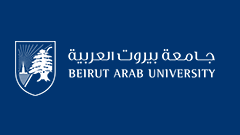Abstract
The concern about the future of architecture education has been growing in the last few decades. This phenomenon is powered by the sensation that the existing models of teaching and practicing architecture may not be appropriate enough to address the challenges of tomorrow. The aim of this research paper is to explore the missing links between the continuous chain of architecture education and the current state of the profession that leads the future. The research conducted a comprehensive review of literature, surveys of academics and Heads of School in Architecture, and the development of some case studies of the existing models of teaching and practicing architecture, in several major universities in the Middle East. It is argued that a consequence of outdated academic curricula must be changed in order to support a paradigm shift. This change would be from the "architect provider" to the "architect enabler". As a result of this issue, a new educational methodology is introduced to support: (1) building bridges between the different disciplines in order to reach integral education, and (2) building bridges between the academia and practice in order to ensure graduates have the necessary technical and social skills. Finally, the paper concludes a set of recommendations that enhance the interaction between academia, practice and the other disciplines. This develops better architectural education future that steers the goals, curricula, research, and service of academia towards the arising new realities.
Keywords
Architectural Education, Curriculum, Workplace Learning, Professional Development, Work-Integrated Learning, University-Industry Partnership
Disciplines
Architecture | Arts and Humanities | Education | Engineering
Recommended Citation
Al-Matarneh, Rana and Mansour, Ashraf
(2016)
"BRIDGING GAPS IN ARCHITECTURAL EDUCATION: DEVELOPING A PROFESSIONAL AND CAREER-ORIENTED CURRICULUM,"
Architecture and Planning Journal (APJ): Vol. 23:
Iss.
2, Article 19.
DOI: https://doi.org/10.54729/2789-8547.1088
Included in
Architecture Commons, Arts and Humanities Commons, Education Commons, Engineering Commons

